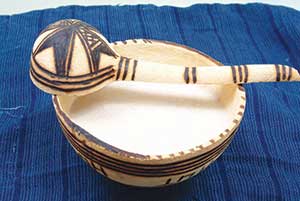Aside water intake, the importance of natural drinks to our health cannot be overemphasised.
The natural drinks are usually derived from fruits and other natural sources. Although fruits are seasonal, there are some people who try to extract as much as they can when they are available.
 As much as some people want to follow nutritionists’ advice concerning natural drinks, their busy schedule could only afford them to settle for carbonated and sweetened derivatives.
As much as some people want to follow nutritionists’ advice concerning natural drinks, their busy schedule could only afford them to settle for carbonated and sweetened derivatives.
“Instead of taking the different so-called ‘natural drinks’ in the market, I advise and even teach some of our patients how to make our local natural drinks,” said Mabel Usoro, a nurse at Ladi Lak Medical Centre, Bariga, Lagos State.
She explained that the local natural drinks are better because they had gone through fermentation which introduces microorganisms that work on the original product to produce a new product that has more nutrients and nourishes the body.
Fortunately, aside the fruit juices, we can be sure of getting the best of nature through such drinks as kunu, zobo and fura da nunu.
Benefits
According to Usoro, these drinks contain ingredients with chemical compounds that can reduce the risk of having heart diseases and diabetes.
The natural spices like ginger that are added help in lowering cholesterol level as well as prevent the formation of blood clots.
It is believed that kunu and fura are thirst-quenchers as well as food supplements.
Fathia Ogundele, who has been selling kunu at Mile 12 market for over five years, explained that nunu can energise for over three hours after consumption.
As an alternative to pap, Roseline Adeyin, a traditional birth attendant, recommends kunu for nursing mothers to help increase the flow of breast milk.
The drinks
Kunu, also known as kununzaki, which used to be popular in the northern part of the country, is now readily available and accepted nationwide. It is mostly made from millet, sorghum and maize.
“To know the grain used, you have to observe the colour. Kunu made from sorghum is milky light-brown, while millet- and maize-based ones are whitish in colour,” explained Ogundele.
She explained that the spicy nature of the drink is due to ginger or pepper that is usually added with sweet potatoes when blending the grains.
Fura da nono is another North-originated with orgins from the north drink made from millet or sorghum with some cow milk. Within Lagos, the protein-rich nono is mostly sold by the Fulani.
They measure the nunu out in their custom calabash before mashing in, upon demand, the fura which Ogundele explained is just to enable one to ‘chew something’ when gulping nono.
Then there is the most popular of the drinks: zobo. It is made from the infusion of dry red hibiscus leaf mostly cultivated in the North. It is interesting to note that the white variety of the leaf, called isapa in Yoruba, is used in cooking soup.
When made, zobo drink is slightly thick, colourful, pleasant and tasty. It can be taken without adding sugar.
Versatility
These natural beverages are so versatile that they have moved from the confines of homes and streets to parties. They are served at parties chilled and garnished with ice, lemon or pineapple rinds.
Another beauty of these drinks is that they are caffeine-free and very rich in vitamin C.
They also come cheap when buying on the street. A 50cl measure of kunu or zobo is often sold for around N100.













